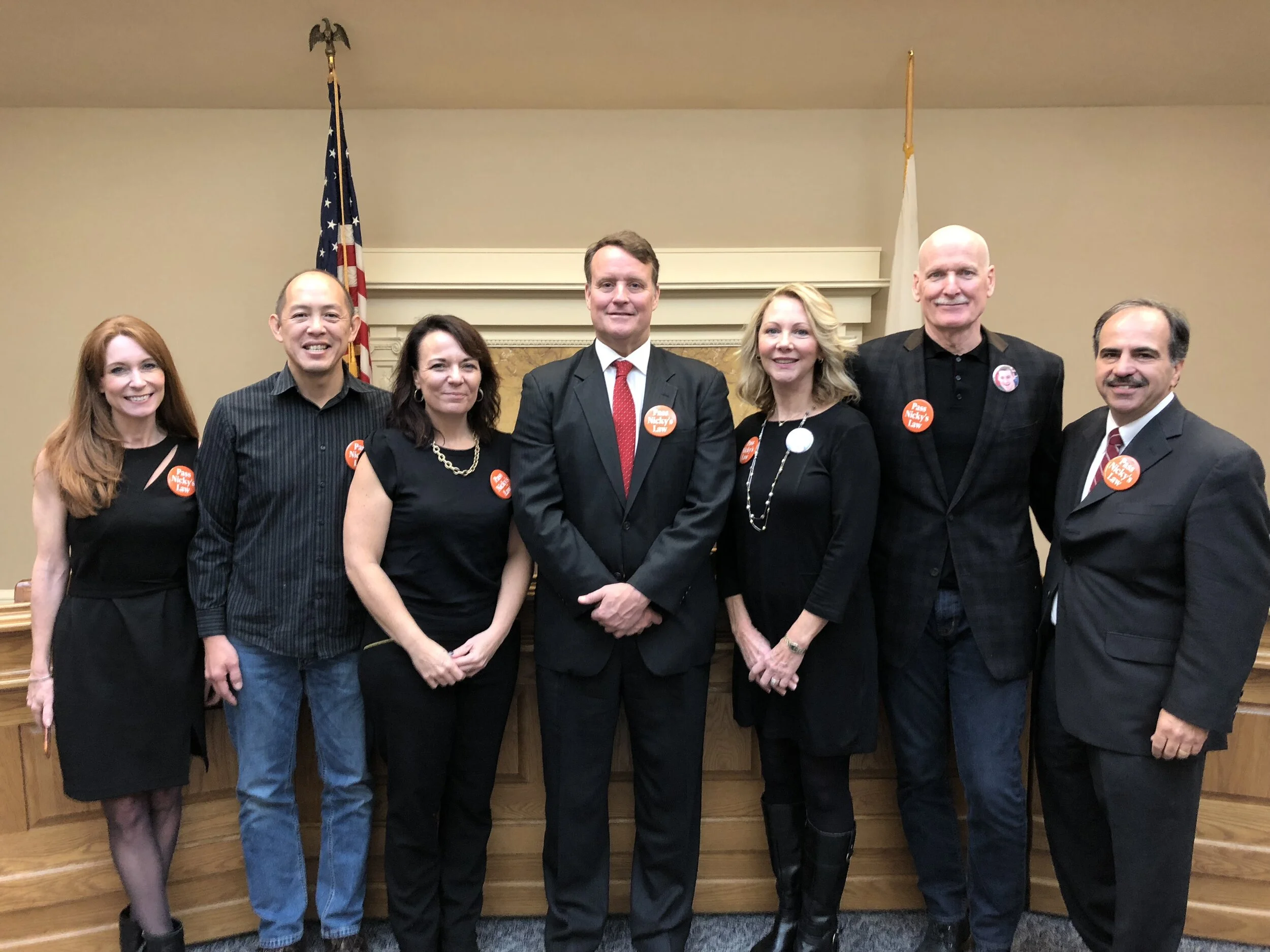Legislation to establish mandatory disability care provider abuse registry
BOSTON – Senator Michael O. Moore (D-Millbury) announced that the Joint Committee on Children, Families and Persons with Disabilities released H.101/S.71, An Act to protect persons with intellectual or developmental disability from abuse, favorably with redrafts today. The legislation has received broad bipartisan support among members of the Massachusetts Legislature, with 158 legislators co-sponsoring the legislation.
“There are clear benefits to screening prospective employees who intend to work within the licensed caretaker field and I am grateful that the Joint Committee has advanced this legislation to help protect our most vulnerable residents like Nicky,” said the Senate sponsor of Nicky’s Law, Senator Moore. “Establishing this registry will help disrupt a cycle of abuse of individuals with disabilities, and put in place common-sense protections that families in the Commonwealth deserve.”
“I am proud that we were able to bring together many organizations, advocates and legislators invested in bettering the lives of people with disabilities,” said Representative Kay Khan (D-Newton), House Chair of the Joint Committee on Children, Families and Persons with Disabilities. “I thank every family, especially Nicky’s parent, Cheryl Chan, who inspired the legislation. You all ardently attended hearings in support and shared your sincere and raw testimony. We heard you.”
The convening of advocates included the ARC of Massachusetts and their 18 affiliates, Department of Disability Services (DDS), Disabled Persons Protection Commission (DPPC), Committee for Public Counsel Services (CPCS), SEIU, Statewide Abuse Prevention Committee, Mass Developmental Disabilities Council, Triangle, Advocates for Autism of Massachusetts, Mass Families Organizing for Change, and Mass Down Syndrome Congress.
“This bill is thanks to the work of so many families, advocates, and stakeholders that have pushed the bill for years and came to the table this session to refine it even further,” said Senator Sonia Chang-Díaz (D-Boston), Senate Chair of the Joint Committee on Children, Families and Persons with Disabilities. “I’m so grateful to both of Nicky’s parents and all of the advocates for their dedication to protecting the lives of some of the Commonwealth’s most vulnerable residents. I look forward to cheering for this bill as it continues to make its way through the legislative process.”
“The testimony of families and caretakers of victims makes clear that this legislation is required to protect our fellow human beings who most often cannot communicate that they are being abused. I am thankful to the families and the many organizations supporting the disabled for their participation in drafting this legislation, and their unwavering determination to ensure that this legislation becomes law,” said Representative Linda Dean Campbell (D-Methuen), the lead House sponsor.
H.101/S.71 directs the DPPC to create a registry of care providers who have substantiated findings of registrable abuse or financial exploitation against a person with a disability. The registry information and its proceedings are confidential and can only be shared if it is necessary for an employer when reviewing current or prospective employment of a care provider or if otherwise provided by law. After notice and if DPPC substantiates a finding of registrable abuse, the DPPC is to provide notification to the care provider of their right to appeal the decision to the Division of Administrative Law Appeals (DALA). Prior to employing or contracting for a care provider, DDS and employers are required to consult the registry and cannot employ a person who is on the registry.
This legislation addresses the severe concern that care providers, who may have substantiated claims against them, can work for a different employer despite their troubling history with disabled persons.
Nicky’s Law would take effect November 2, 2020, if enacted by the Massachusetts Legislature and signed by Governor Baker this current legislative session.

